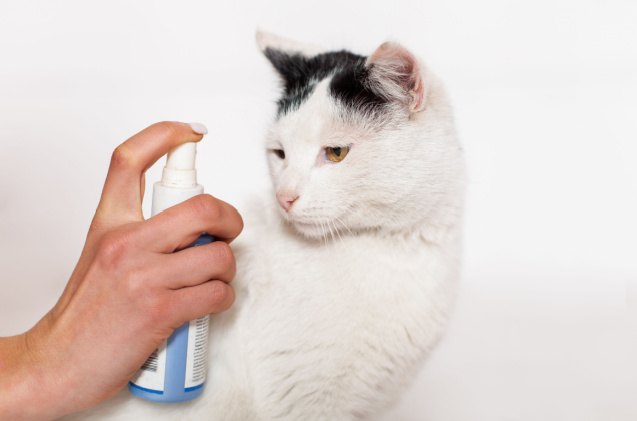Introduction
Cats’ independent natures are common in many households. Personal hygiene is their specialty. However, sometimes our feline buddies need help staying clean and pest-free. Despite the abundance of commercial kitty grooming and pest control solutions, many pet owners choose natural alternatives. Because of its safety and effectiveness in boosting feline health and hygiene, vinegar spray on cats become popular. In this article, we’ll discuss how to use vinegar spray for cats’ benefit, how to make it, and how to use it safely.
The Advantages of Vinegar Spray on Cats
Controlling fleas and ticks is a complex undertaking for any pet owner. For individuals looking for a natural option, the antagonistic effects of toxic chemicals in commercial flea and tick solutions are a significant worry. Fortunately, vinegar spray is a mighty natural flea and tick repellent free of the hazardous chemicals found in many commercial solutions, assisting in repelling these pests while keeping your beloved feline safe.
The development of a bad odor in their feline pets is a regular problem for many cat owners. This stinky scenario can occur for various reasons, including litter box troubles, stomach disorders, or coat issues. The magic of vinegar spray comes into play since it can assist in deodorizing your cat, leaving them feeling fresh and clean, satisfying both the cat’s and the owner’s olfactory senses.
The cleansing power of vinegar spray is well known and can be used to great advantage in keeping your cat’s hygiene. Vinegar’s natural cleaning agent can help remove dirt, filth, and stains from your cat’s coat, leaving it shiny and lustrous. The effectiveness of vinegar spray in keeping your cat’s hygiene is undeniable, and its potential should not be underestimated.
How to make cat vinegar spray?

The age-old flea and tick problem can be solved with equal vinegar and water. This elixir repels these pests without using harmful chemicals like commercial treatments. It’s easy to make the combination.
Start with a spray bottle that can hold enough mixture. Pour the vinegar and water into the spray bottle. To maximize the mixture’s potential, shake the spray bottle briskly after adding the vinegar and water.
Voila! The potential of your cat vinegar spray is unmatched. However, the spray is highly acidic and can cause skin irritation if undiluted. Thus, diluting the mixture properly prevents skin irritation in cats.
Using Vinegar Spray on Cats
Use vinegar spray on cats with caution. Thus, it’s crucial to know that some cats are sensitive to vinegar, so test the spray on a tiny part of your cat’s coat before applying it all over. Prudence is better than bravery.
After taking care, spray your cat’s coat with vinegar. Fill a spray bottle with equal parts vinegar and water to start. Though easy to prepare, the combo has unrivaled potential. Once the mixture is in the spray bottle, apply it. Spray a small amount of the mixture on your cat’s coat from the neck to the tail. The application must be made carefully to distribute the mixture on your cat’s coat uniformly. A soft-bristled brush helps disperse the spray evenly and maximize efficacy.
Avoid spraying your cat’s eyes, nose, and mouth to avoid irritation. To ensure a smooth application process, caution must be taken. Before cleaning your cat’s coat with warm water, let the vinegar spray rest for a few minutes. The combination must stay on the coat long enough to kill parasites. Towel-dry or air-dry your cat. To keep your cat happy, the drying procedure is vital.
Measures to be Followed

Vinegar spray on cats has certain drawbacks. First, undiluted vinegar can irritate your cat’s delicate skin. Thus, vinegar must be diluted before usage. Even diluted vinegar spray may be unsafe for all cats, especially those with sensitive skin or open wounds. Thus, before spraying your cat’s coat, test a tiny area. This protects your cat from allergic reactions to the mixture.
Avoid spraying vinegar in your cat’s eyes, nose, or mouth. Avoid discomfort and danger to your cat by administering the mixture carefully. Vinegar spray repels fleas and ticks, deodorizes, and cleans cats. However, cats vary, so what works for one may not work for another. Before spraying vinegar on your cat, consider their needs and allergies.
Conclusion
Vinegar spray is safe and natural for cat owners. Its easy preparation and use and many benefits for feline health and well-being make it a great choice. By following this article’s rules and ensuring your cat’s safety, you may confidently use vinegar spray on your pet, knowing you’re giving them a safe and effective remedy.
hey we have a lot of information on cats you can check out by clicking Bristhorthair.com
wants to follow us on social media

